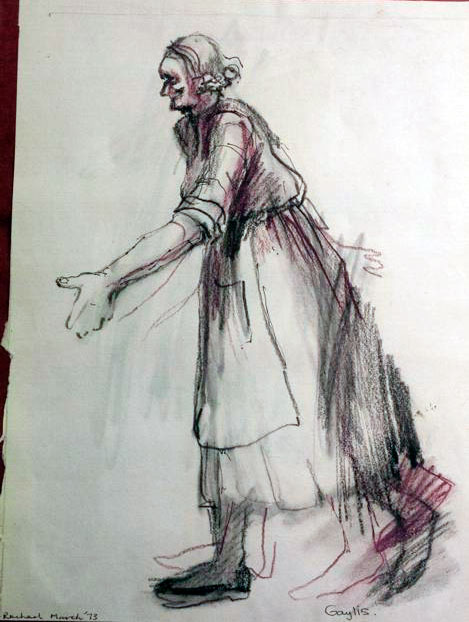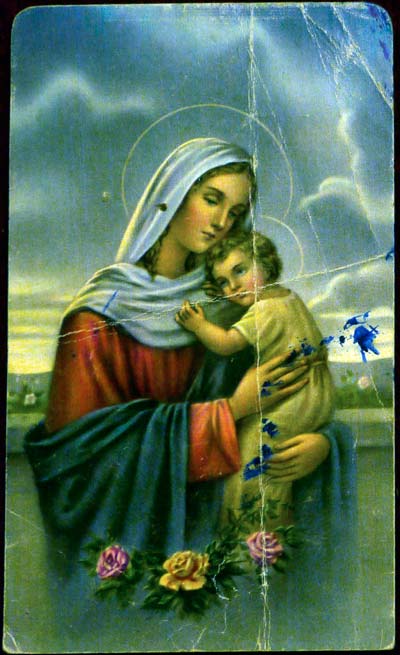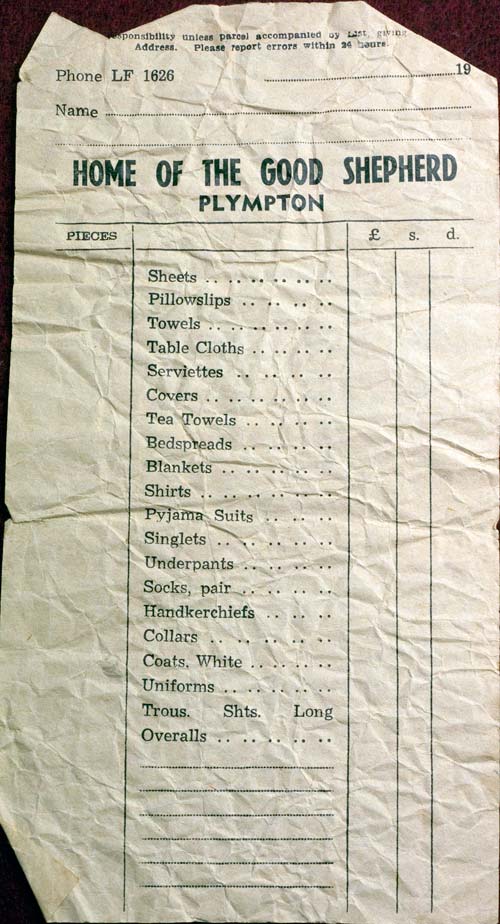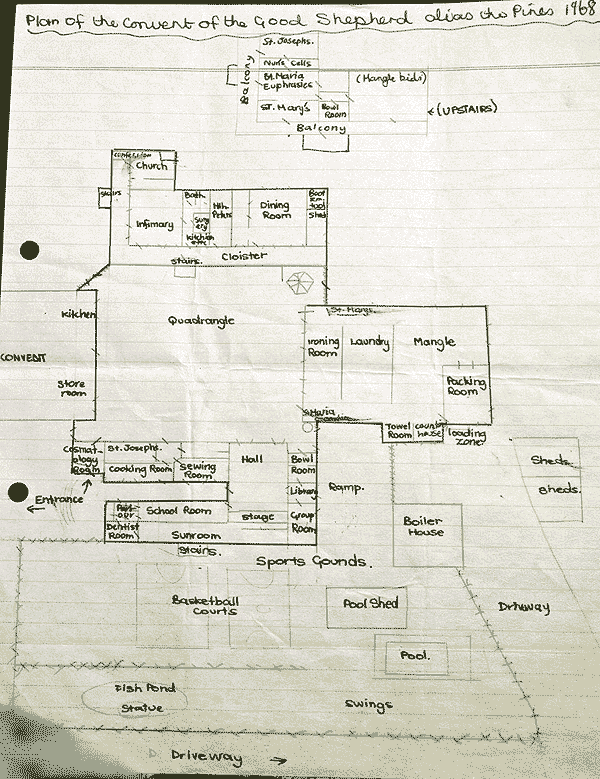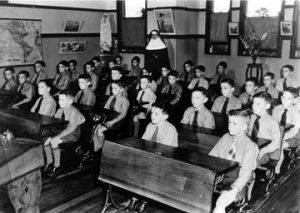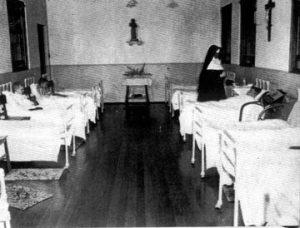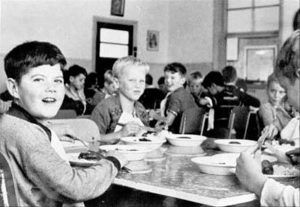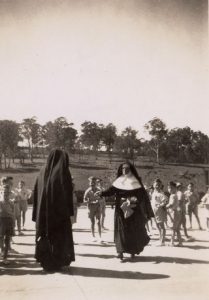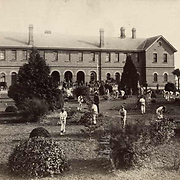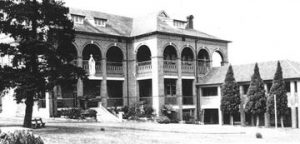by Rachael Romero (guest author) on 16 February, 2011
Rachael Romero remembers those women, admitted as children, to the Convent of the Sisters of the Good Shepherd, ‘The Pines’, Plympton, who had stayed on in the institution well into their adulthood. Why didn’t they leave? What became of them?
Gaylis
copyright Rachael Romero, 1973
Gaylis was a ‘lifer’, a sweet-hearted person left there by her family. She was made to slave in the kitchen with no idea how to be the cook, but she did her best.
I still remember the chunks of lard and the bubbles of powdery flour that had not been stirred together sufficiently before baking a crust for that terrible gravy pie with junks of leathery kidneys swimming in it. I want to retch.
Having once seen ‘Little Jo’ on Bonanza, Gaylis was forever besotted with him – it was all she spoke of. Oh Gaylis what became of you when the place closed and the nuns fled? Slaving was all you knew.
There was also a woman with Downs Syndrome who folded hankies in that thunderous laundry. She waited on a Sunday with her handbag for someone to take her out. No one ever did.

